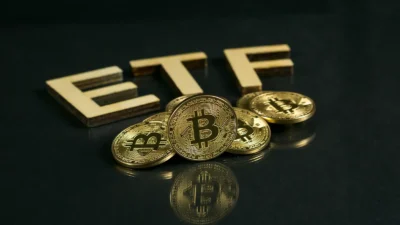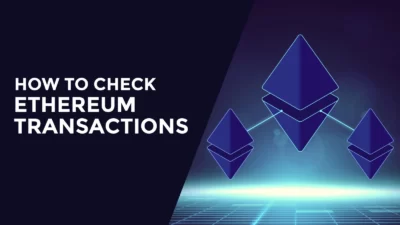Table of Contents
Toggle- Ethereum vs Ethereum Classic: What Is Ethereum and Ethereum Classic?
- Ethereum vs Ethereum Classic: The Shared History of Ethereum and Ethereum Classic
- Ethereum vs Ethereum Classic: The DAO Hack and the Hard Fork That Created ETC
- Ethereum vs Ethereum Classic: Differences in Philosophy Immutability vs Practicality
- Ethereum vs Ethereum Classic: Differences in Community Support and Adoption
- Ethereum vs Ethereum Classic: Differences in Blockchain Characteristics and Prices
- Investing in Ethereum vs Ethereum Classic: Which Is Better?
- In Summary
In the ever-evolving world of cryptocurrencies, Ethereum has emerged as a prominent player, revolutionizing not only a digital currency but also the very foundations of decentralized applications. But did you know there’s not just one Ethereum—there are two? That’s right, there’s Ethereum and then there’s Ethereum Classic. Sure, they may sound similar, but they have their fair share of differences that make each unique.
From discussing the different protocols behind them to exploring their market capitalizations and performance as an investment option, every aspect will be covered along with all the major points of comparison between Ethereum and Ethereum Classic—so stick around if you want a better understanding of these two digital assets.
Ethereum vs Ethereum Classic: What Is Ethereum and Ethereum Classic?
So, you’ve heard of Ethereum and Ethereum Classic, but what’s the difference between these two blockchains? It’s important to know the difference before investing in either one of them. Here’s a breakdown of what they both are:
Ethereum
Ethereum is an open-source public blockchain platform. It’s based on the Ethereum Virtual Machine (EVM), which is designed to execute scripts using an international network of public nodes. With Ethereum, users can create and deploy distributed applications, as well as use smart contracts for various transactions. It also has a built-in cryptocurrency called Ether (ETH) that powers it. All transactions on the network are tracked and recorded on the blockchain.
Ethereum Classic
Ethereum Classic is a fork of the original Ethereum blockchain. Its core values include decentralized immutable trust, censorship resistance, and preservation of user autonomy over their data and funds. Like its parent blockchain, it allows for smart contract creation and execution; however, it does not use ethers (ETH). Instead, users can use tokens called ETC (Ethereum Classic) as currency to make payments or engage in other transactions on the network.
Ethereum vs Ethereum Classic: The Shared History of Ethereum and Ethereum Classic
Ethereum and Ethereum Classic both have their roots in the same place – the Ethereum blockchain. It all began a few years ago when a major hack caused widespread disruption on the Ethereum network, leading to losses of millions of dollars. To resolve this issue, the developers decided to “roll back” the blockchain before the hack occurred, deleting all data that had been altered or compromised.
The decision was controversial and led to disagreement among developers and users. This led to a hard fork in which two different versions of the blockchain emerged – Ethereum and Ethereum Classic. While both networks have some similarities, there are some key differences between them. Let’s take a closer look at how they stack up, so you can decide which one is best for you.
The intertwining tale of Ethereum and Ethereum Classic finds its origins in the Ethereum blockchain. The narrative unfolds a few years ago when a significant hack sent shockwaves through the Ethereum network, resulting in substantial financial losses. In response to this crisis, the development community made a critical decision to undertake a “rollback” of the blockchain, reverting it to a state before the hack transpired. This action necessitated the removal of any data that had been tampered with or compromised.
The aftermath of this decision was marked by controversy, sparking vigorous debates among developers and users alike. Ultimately, this discord paved the way for a pivotal event: a hard fork that led to the emergence of two distinct versions of the blockchain—Ethereum and Ethereum Classic. While these networks share some common ancestry, they diverge in crucial aspects. To make an informed choice about your preferences, let’s delve into a comparative analysis of their attributes.
Eager to explore the cryptocurrency realm and its potential opportunities? Consider the dynamic financial landscape of Dubai, where you can potentially “Sell Bitcoin in Dubai.” This bustling global hub offers a unique vantage point to engage with the world of cryptocurrency trading, amidst an environment that bridges traditional finance and cutting-edge technology.
Ethereum vs Ethereum Classic: The DAO Hack and the Hard Fork That Created ETC
You may have heard about the Decentralized Autonomous Organization (DAO) disaster that happened a few years ago, and how it impacted the Ethereum network. In short, the DAO was a venture capital firm built on top of Ethereum to provide an automated way for investors to crowdfund projects. Unfortunately, a hacker exploited a vulnerability in the DAO’s smart contract code and managed to steal a large sum of funds.
The incident created a dilemma for founders and users of Ethereum—should they accept the theft as part of doing business on the blockchain, or should they take steps to reverse it? To create consensus on what to do next, Ethereum developers decided to put the issue to a vote via a hard fork.
The result was two distinct versions of Ethereum: Ethereum Classic (ETC), which supported keeping the blockchain unchanged and preserving immutability; and Ethereum (ETH), which kept all prior transactions as they were written but excluded any transactions related to The DAO hack. This allowed people who had their ETH stolen by hackers to get their money back and reinstate some sense of trust in the system.
Ethereum vs Ethereum Classic: Differences in Philosophy Immutability vs Practicality
Are you curious as to why there’s an Ethereum and an Ethereum Classic? Well, the main difference between them lies in their underlying philosophies. They diverge in their take on immutability and practicality.
Put simply, Ethereum is built on the mantra of “code is law”— it means that once something is written into the blockchain, it cannot be changed or amended in any way. On the other hand, Ethereum Classic believes that code should be “rewritable” at any time to enable quick fixes and alterations when necessary.
At its core, this difference can be boiled down to one thing: should a blockchain be immutable regardless of how practical it may be? That’s a matter of opinion. You could argue that immutability is ideal since it ensures that trust remains intact, or you could argue that flexibility allows for agile problem-solving should an issue arise.
Ultimately, the decision comes down to you—if you prefer a blockchain network that prioritizes immutability over practicality, then you should buy Ethereum and plan to invest in it; however, if you prefer greater flexibility even if it means compromising on security and trustworthiness slightly, then Ethereum Classic could be your best bet.
Ethereum vs Ethereum Classic: Differences in Community Support and Adoption
You might not know that Ethereum vs Ethereum Classic has different levels of community support and adoption.
Adoption of Ethereum
Ethereum is the more popular option, with most people using it to quickly build dApps and smart contracts. Plus, a lot of developers have jumped on the bandwagon to work on building solutions on Ethereum, which is why it’s seen as more reliable with a larger support base than Ethereum Classic.
Support for Ethereum Classic
On the contrary, Ethereum Classic has a small but dedicated following among crypto enthusiasts who prefer its original mission of immutability and security. They prefer to work with fewer limitations (as compared to Ethereum) and see opportunities for growth in this smaller blockchain despite its slower speed and scalability issues.
It’s also worth noting that Ethereum Classic is much easier to mine than its counterpart—making it attractive to miners who want to get in early before larger mining operations take pieces of the pie.
Ultimately it’s up to you which one you choose, but both Ethereum and Ethereum Classic offer possibilities for developing new applications. So before you make your decision, think about how each platform can fit into your project or business plan—and don’t forget to take into account things like community adoption rates, scalability issues, transaction speeds, total coins available, and other relevant factors in your decision-making process.
Ethereum vs Ethereum Classic: Differences in Blockchain Characteristics and Prices
When it comes to understanding the differences between Ethereum and Ethereum Classic, it’s important to take a look at their blockchain characteristics and price points. Here’s a breakdown of how these two differ on both fronts:
Blockchain Characteristics
The primary difference between Ethereum and Ethereum Classic lies in the blockchain characteristics; namely, the rules under which it operates.
Ethereum utilizes a Proof-of-Work (PoW) algorithm, while Ethereum Classic relies on a hybrid system of Proof-of-Work and Proof-of-Stake (PoS). The PoW model is often viewed as being more secure than PoS systems, as it requires miners to solve complex mathematical problems before adding new blocks to its chain. On the other hand, PoS models require users to “stake” their coins to participate in the consensus process. This means that anyone who holds large amounts of ETC is incentivized to keep the network secure by staking their coins, thus leading to higher scalability and faster transaction times.
Price Differences
In terms of price differences between the two cryptocurrencies, Ethereum is currently trading at around $ 1,820.51 per (ETH / USD), while Ethereum Classic is trading at around $18.39 per coin—a huge disparity! This can be attributed to several factors such as market capitalization and supply. For example, Ethereum has over 170 million coins in circulation compared to just over 115 million for Ethereum Classic—giving it an edge when it comes to liquidity. That said, given its larger market capitalization and higher circulating supply, ETH is typically more volatile than ETC which has many investors opting for the latter despite its lower price point.
Investing in Ethereum vs Ethereum Classic: Which Is Better?
So which one should you invest in? Which is better—Ethereum or Ethereum Classic?
The answer depends on your investing strategy and goals. Both Ethereum vs Ethereum Classic are valid investments, but it’s important to understand the differences between the two to make an informed decision.
The biggest difference between Ethereum vs Ethereum Classic is their respective blockchains. Ethereum is built on a Proof of Work blockchain, while Ethereum Classic is based on a Proof of Stake blockchain. The two blockchains are different, yet still compatible with each other.
When it comes to investing, you should consider your individual needs and goals. For instance, if you’re looking for shorter-term gains, then you should buy and sell Ethereum, and investing in it may be the better option as it has more liquidity and its transactions are faster than those of Ethereum Classic. On the other hand, if you’re looking for longer-term gains then investing in Ethereum Classic might be more suitable since its transactions take less time to process than those of Ethereum, which makes them more secure.
Ultimately it all comes down to your own personal preferences and risk tolerance when deciding between investing in Ethereum or Ethereum Classic. Do your research and decide what’s best for you!
In Summary
Ethereum vs Ethereum Classic are both major players in the blockchain space and have some significant differences. Ethereum is the more popular of the two and has evolved into a more sophisticated blockchain platform. Ethereum Classic is more of an ideological choice for users with more underlying principles in mind.
Whether you choose Ethereum or Ethereum Classic, make sure to do your research and understand the platform you’re investing in. Both are powerful and can be used for a variety of applications, but their differences should not be overlooked. In the end, it’s up to you to decide which path is right for you.







